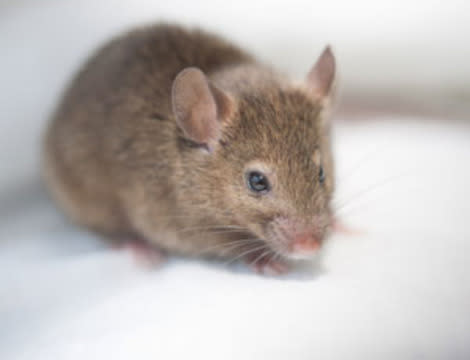How to Get Rid of Mice Naturally

When mice invade the home, the instinct to kill can overwhelm many a homeowner.
But beyond being cruel to critters just trying to live, a lot of the poisons commonly used for years are so toxic that the Environmental Protection Agency recently moved to ban the most toxic products, as well as most loose bait and pellet poisons, and even started legal action against some manufacturers.
Why? These pesticides resulted in thousands of calls to poison control centers annually, and because they weren't contained in tamper- and weather-resistant bait boxes, pets and wildlife were also killed.
What's more, research has shown that pesticides used in and around the home can linger for years.
In addition to banning the use of loose baits, the EPA is banning the use of poisons called "second generation anticoagulants" that kill by causing internal bleeding after a single dose. (These new rules apply to products marketed for home use, but licensed pest control professionals may still use them in homes.)
So how can you get rid of mice in your home naturally? The answer is integrated pest management. Here are a few tips, from the EPA and Beyond Pesticides:
Seal cracks and holes in the house that can allow mice to enter. (You'll also save energy.)
Remove food sources that may attract them, such as trash, pet food or fallen fruit from trees. And store your food properly.
Housecats are nature's mouse predator. Just don't let them outside, because they also kill songbirds, and never use mouse poison because your cat could easily ingest it along with the mouse.
Capture mice with live traps and move them far from the home.
Use snap traps with sensitive triggers that are more likely to kill quickly. Use as many as 10 traps near any known mouse hole, and position them about two feet apart along walls, with the bait-end against the wall. Use gloves or else your scent on the traps may make them ineffective.
Glue traps are unlikely to kill mice quickly, but can be effective. Keep them in place for at least five days so mice become accustomed to them.
Repellent sound devices may or may not work, but are designed to annoy mice with a high-frequency sound that humans can't hear.
Poison bait boxes can be used as a last resort. Look for tamper- and weather-proof boxes that use first-generation (multiple-dose) anticoagulants. Place them only in areas that are inaccessible to pets and children.
More Tips from The Daily Green
> The Dirty Dozen Foods with the Most Pesticide Residue
> The Clean 15 Foods with the Least Pesticide Residue
> Super-Simple Ways to Declutter Your Home
> 7 Easy Ways to Save Energy at Home
> 18 Incredible Homes Under 2,500 Square Feet
